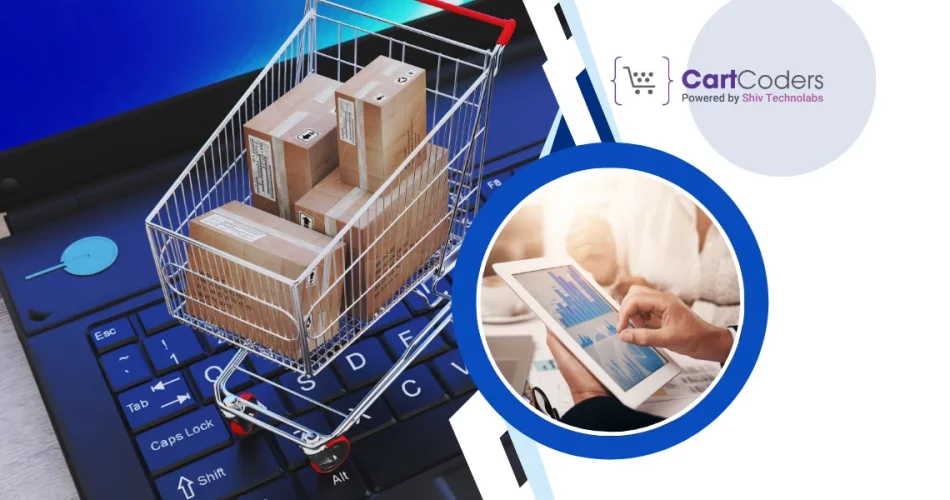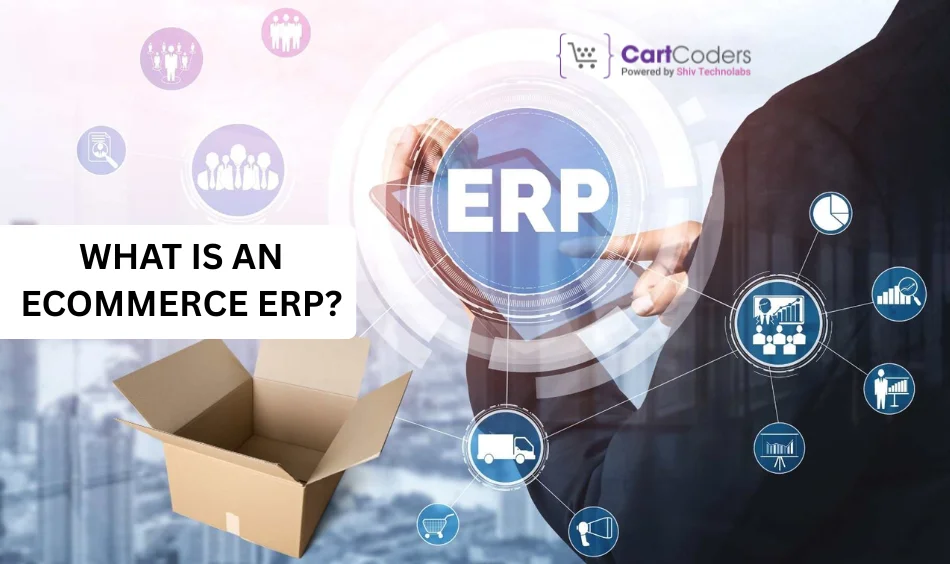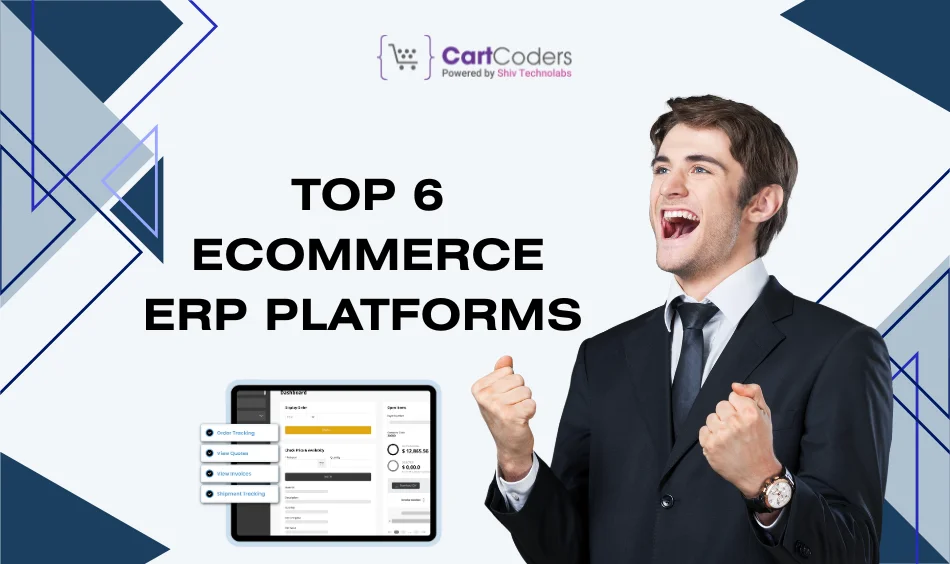Custom Engagement Solutions
Unlock tailored solutions with a free, no-obligation strategy session.
Expert Developers & Engineers on Demand
Scale Your Team with Skilled IT Professionals
Expert Guidance for Digital Transformation

Being involved in an online store is fun, but you’ll also experience difficulties as you go along. You control the stock of products, deal with orders, oversee the stock count and handle account management. All of these steps would be time-consuming and not very organized if completed manually.
This task can be handled more efficiently with the aid of an eCommerce ERP.
The term ERP means Enterprise Resource Planning. It allows your company’s sales, stocks, shipping and other activities to be managed in a single system. Online stores experience a major shift due to this.
With the right ERP for your eCommerce business, you can save time, reduce mistakes, and grow faster. About 53% of e-commerce stores now use ERP tools to manage operations better.
In this guide, we aim to explore the top eCommerce ERP platforms, outline their capabilities, identify their benefits, and help you choose the best for your store.
If you are just starting or need an upgrade, this guide can help.

eCommerce ERP software enables you to run your online store by connecting your sales platform to all your back-end processes. This includes:
With ERP integration with eCommerce, all your systems talk to each other. This saves time and avoids errors.
If a product is sold, your ERP automatically accounts for the inventory and generates and issues the required documents, and sends the shipment.
Before choosing a platform, here are the top features to check in any eCommerce ERP solution:
Now, look at the top eCommerce ERP platforms offering these features.

Below are some leading eCommerce ERP Platforms that streamline your business operations:
NetSuite is a popular cloud ERP trusted by many growing e-commerce businesses.
Stores with complex operations or international customers.
Odoo is an open-source ERP with a strong suite of tools for online stores.
Startups or small online shops need flexible features.
SAP Business One is made for small to medium businesses but backed by the power of SAP.
Shops are looking for long-term ERP growth and strong reporting.
Microsoft’s Dynamics 365 is a mix of ERP and CRM in one package.
Mid- to large-sized eCommerce stores that want a built-in CRM.
Acumatica is a modern, cloud-based ERP built for eCommerce.
Growing online businesses want flexibility and modern features.
Formerly known as TradeGecko, QuickBooks Commerce is great for managing stock and orders.
Small online stores or sellers are using QuickBooks already.
Let’s quickly recap the main benefits of eCommerce ERP software:
Businesses that use ERP grow 35% faster, on average, than those without it.
If you run your store on Shopify, make sure the ERP you choose supports ERP integration with Shopify. This allows:
Many ERPs support Shopify, but proper setup is key.
Use this checklist to pick the right ERP for your online store:
Still not sure? Let the experts help.
Choosing the best ERP is essential, but getting it to work with your online store is even more critical.
That’s where CartCoders comes in.
We are Shopify experts and offer smooth Shopify ERP integration. Whether you run a small store or a large eCommerce business, their team helps you:
Train your team
CartCoders ensures your ERP for an eCommerce business works smoothly—no bugs, no delays.
They don’t just connect tools—they help you run a better business.
Choosing the right eCommerce ERP can transform your online store. With one system to manage everything—from orders to accounts—you save time and grow faster.
Some well-known examples of platforms are NetSuite, Odoo and Acumatica. The most useful ERP for your company is the one that matches your business and works with your sales system.If you use Shopify and want the best ERP setup, CartCoders is your go-to partner. Their team makes ERP integration with Shopify fast, easy, and stress-free.
Projects delivered in 15+ industries.
95% retention rate, building lasting partnerships.
Serving clients across 25+ countries.
60+ pros | 10+ years of experience.